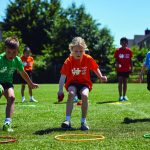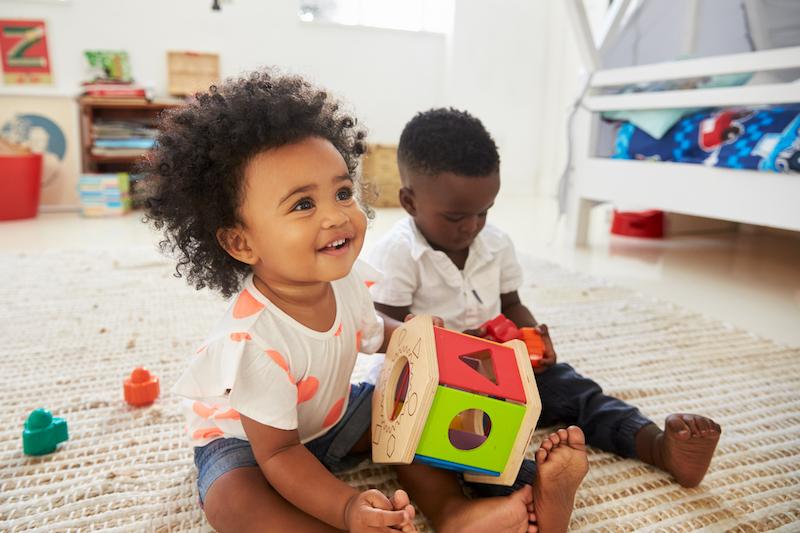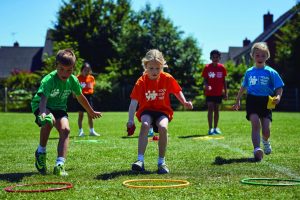Children’s social-emotional development is just as important as their cognitive and physical development. Social-emotional skills like cooperation, empathy, and self-regulation are essential for children to successfully navigate school, relationships, and life. While many parents focus heavily on academic achievement, research shows that a child’s ability to understand emotions, feel empathy, make friends, and resolve conflicts is strongly linked to their overall wellbeing and success.
Play is one of the most effective ways for children to develop these critical social-emotional skills. Both unstructured free play and more structured games give children the opportunity to interact socially, work through challenges, and regulate their emotions. Parents and educators can promote key social-emotional abilities in children through providing developmentally appropriate play experiences.
Benefits of Play for Social-Emotional Growth
Play allows children to explore social interactions and try out behaviors in a low-stakes environment. Unlike strictly academic learning, play is child-led and gives them freedom to follow their interests and creatively problem-solve. Researchers have identified many ways that play enhances children’s social-emotional growth:
- Communication skills – Play requires children to interact verbally and nonverbally with peers. Negotiating roles, cooperating, and expressing themselves helps strengthen their communication abilities.
- Empathy – Role playing diverse perspectives and characters during pretend play builds children’s capacity for empathy. Seeing things from another’s point of view is a fundamental social skill.
- Emotion regulation – Play inevitably involves conflicts, challenges, and frustrations. Learning to work through emotions constructively, without lashing out, is an important developmental milestone.
- Self-confidence – Leading games, compromising with others, and trying new experiences through play fosters self-confidence and resilience. Children gain a stronger sense of self through play interactions.
- Friendship skills – Play teaches children how to make friends, take turns, share, and resolve group conflicts. Peer relationships grown through unstructured play help kids feel socially accepted.
- Problem-solving – Hands-on play encourages creative thinking, testing solutions, and collaborating with others to overcome obstacles. These critical thinking skills build executive functioning.
The American Academy of Pediatrics states that free play is so beneficial for child development that it should be included as a right for all children. Play cultivates the whole child, not just their intellect.
Providing Developmentally Appropriate Play
To get the most out of play for social-emotional growth, it is important to offer activities aligned with children’s developmental stage. As kids mature, their play skills and interests evolve.
Here are some examples of play for different age groups:
- Infants & Toddlers – Sensory exploration, songs, imitation games, puppets, peekaboo, constructive play with blocks.
- Preschoolers – Pretend play, dress up, fantasy characters, learning games with rules, cooperative art projects.
- Early Elementary – More intricate imaginary games, organized sports, board games, performing skits/plays.
- Older Elementary – Complex building projects, strategy games, competitive team sports, performing increasingly intricate dramatic scenes.
The common thread is that children should feel actively engaged and challenged but not frustrated or bored. Open-ended play stimulates social learning better than highly structured activities. Simple materials like blocks, costume pieces, art supplies, balls and sticks allow more creativity in social problem-solving versus limited toys with one use.
Family Play Opportunities
Parents can encourage social-emotional growth through regular play time with their children and being involved in what interests them. Here are some everyday ways for families to prioritize play:
- Schedule unhurried, unstructured play time each day without screens. This allows children to take the lead.
- Create a play space in the home with varied open-ended toys to stimulate imagination. Rotate materials to keep it fresh.
- Play side-by-side with your children, following their cues. Narrate their play without directing.
- Go to playgrounds, libraries, museums, and other community places with interactive play options.
- Have regular family game nights to practice taking turns, enjoying competition healthily, and winning/losing gracefully.
- Embrace play opportunities in daily routines – make bath time a chance for water play, let your child “help” with cooking tasks, have stuffed animals come along on errands.
- Limit spectator only activities like TV. Instead, promote engagements where your child plays an active role.
The ultimate goal is to spark your child’s natural curiosity, creativity, and interest in engaging with the world around them. Play allows them to learn how to navigate social dynamics and manage emotions as their independence develops.
Research clearly demonstrates that play is not a waste of time, but rather an essential engine of social, emotional, and cognitive growth. It is one of the most vital ways children become socially competent, emotionally mature, and ready to take on the world. Play on!
















